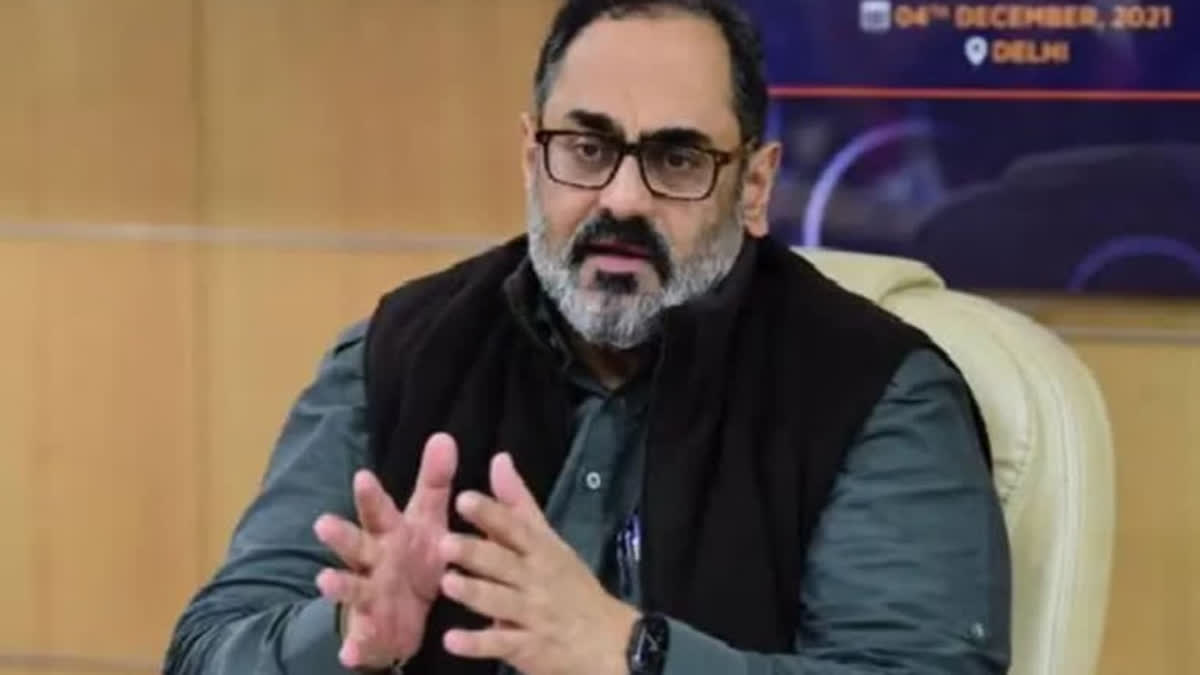New Delhi:Union Minister Rajeev Chandrasekhar has said that for a large, connected nation like India, deepfakes and misinformation represent a "very problematic issue" for conducting safe, free and fair elections.
With respect to tackling deepfakes and misinformation, he said social media platforms are under watch on remedial actions they take in next 7-10 days on 'advisories' issued by the government. The minister also promised that inaction on their part may prompt amendment to the IT Rules that will be more "prescriptive".
In an interview with PTI, Chandrasekhar, who is Minister of State for IT and Electronics, counted the Digital Personal Data Protection (DPDP) legislation, setting up of grievances appellate panels and tighter accountability enforced on digital platforms for user safety as being among the big achievements for 2023.
Chandrasekhar, however, said that the Digital India Act (that will supersede the 22-year-old Information Technology Act) despite undergoing extensive pre-consultations "ran out of time" and termed it "an unfinished agenda".
"...The Digital India Act which we put a lot of effort into...spent almost a year on pre-consultations...we ran out of time...these things happen, but certainly, it's an unfinished, incomplete agenda. But the principles of the DIA, the fact that we have advocated this new framework, and the fact that people are all beginning to understand some of the principles that we laid out during these consultations, is certainly gratifying," the minister said, adding that this is something the government will take up.
India is headed for general elections early next year, and the DIA is expected to be legislated only after the 2024 polls and the formation of the government.
On the issue of deepfakes, the minister said that for a large, connected nation like India, which is the world's largest democracy, deepfake represents "certainly a very, very problematic issue to the conducting of safe and free and fair elections". Moreover, it challenges the right to personal liberty and lives of individuals who can be targeted with deepfakes that mischaracterised them, their statements or behaviour.
The government has been flagging its worries to social media and other digital platforms about misinformation and deepfakes, and has alerted them about the problems it could create in a democracy like India. Unfortunately, the platforms did not heed the warnings or take necessary action in terms of prosecuting or barring those users who were violating the laws, thus triggering the need for advisories, he said.
"They should have done a number of things in terms of prosecuting and barring people who are violating these laws. They didn't do any of this. It is becoming increasingly more and more visible that deepfakes are trying to influence election outcomes," Chandrasekhar said.
